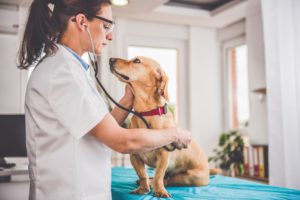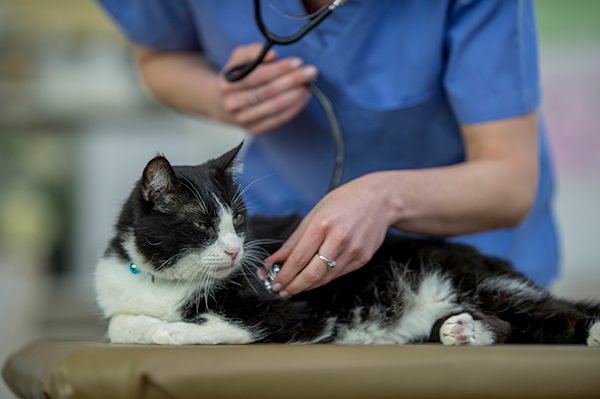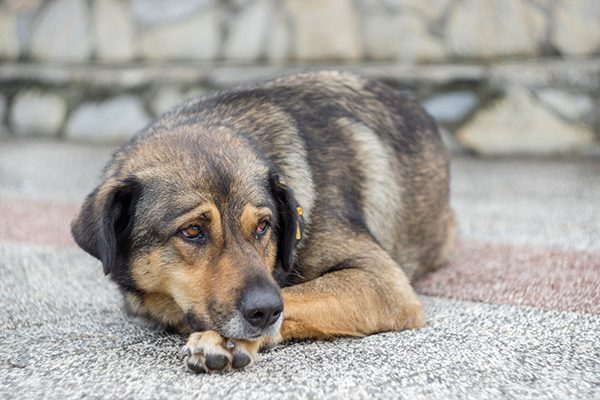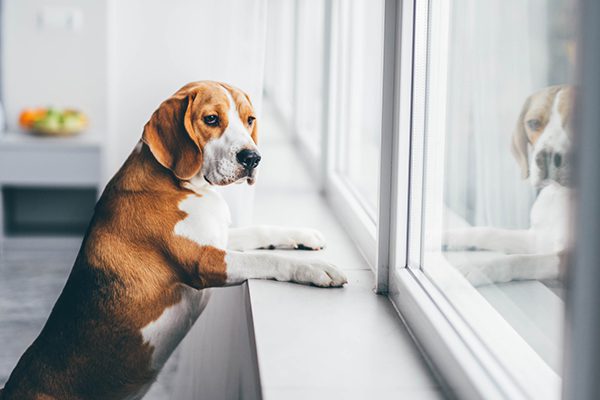Parvo in Dogs: What to Look for and How to Treat it
Parvovirus is an infectious illness that can affect puppies and unvaccinated dogs. An insidious and often aggressive illness, untreated pups can even die from parvo.
Parvovirus is propagated by making contact with contaminated feces. It may also be spread by having contact with a contaminated object or another dog. Parvo is treated with supportive care, requiring your dog to stay in a veterinary hospital for about five to seven days.
Whether a dog makes a full recovery depends on how seriously ill they are and how soon they were hospitalized after symptoms were present. If you want to understand more about parvo in dogs, check out this article.

What is Canine Parvovirus?
Canine parvovirus is a highly contagious DNA virus in dogs, which often causes gastrointestinal illness in puppies. It primarily impacts the swiftly dividing cells in the body. The disease most often occurs in puppies between the ages of 6 and 20 weeks old. The virus is problematic to obliterate and can persist for a lengthy time in the natural environment. Unfortunately, the disease can be deadly if not treated in time.
How Do Dogs Develop Parvo?
Parvovirus can survive on various surfaces within the environment. It is dispersed through contact with diseased feces. However, the dog does not need direct contact with the feces to contract the illness. It can live on the ground in kennels, or it can exist on objects such as:
- Bedding
- Bowls
- Carpets
- Clothes
- Grass
- Shoes
Whether or not the dog becomes infected can depend on the dog’s immune system. Dogs may also carry it on their fur and paws if they have encountered infected feces. Dogs exposed to parvovirus often demonstrate signs of illness within 3 to 10 days.
What Occurs in the Contaminated Dog’s Body?
Parvovirus usually commences by attacking the tonsils or lymph nodes of the pharynx. Parvo strikes the lymphocytes, which are white blood cells. The virus produces several copies of itself, and it attaches to the lymphocytes and then enters the bloodstream. It strikes the bone marrow and the cells that line the edges of the small intestine.
When in the bone marrow, the virus prevents the body from being able to protect itself by attacking the white blood cells. It makes it easier for the infection to come into the gastrointestinal tract, where it causes considerable harm. The virus then invades the area in which new epithelial cells are created and prevents healing in the intestines.
Without the ability to replace the cells, the body becomes unable to absorb nutrients, prevent fluid loss in the stool, or keep bacteria from moving into the gut. The intestines break down, and bacteria enter the bloodstream. The body cannot create new white blood cells to protect itself. Parvo is not always fatal, but fatality usually occurs from severe dehydration and toxins in the bloodstream.
What Are the Symptoms of Parvovirus in Dogs?

You need to look for some signs if you suspect your dog is infected with parvovirus. If you see any of the subsequent indicators of parvo in your dog, get them to the vet right away, as time is of the essence:
- Dehydration
- Diarrhea
- Fever
- High heart rate
- Lack of appetite
- Severe fatigue
- Vomiting
Early on, it may be difficult to tell that your pup is ill, which is why so many people overlook these signs and delay treatment. However, you must be diligent in getting your dog help and get them treated right away, as it does not take long for dogs to become weak and debilitated from the illness.
What Are the Stages of Parvovirus in Dogs?
The Canine Parvovirus typically occurs in stages. You should never wait to go to see the vet until the symptoms are severe, as the pup will likely require immediate treatment. The following includes the stages of parvovirus:
Infection
Exposure occurs, and the dog becomes infected with the virus. It only takes minimal contact to trigger infection, as it enters through the mouth of the dog. The dog can contract the virus by sniffing fecal matter.
Incubation
The incubation period occurs between 3 and 7 days when the dog is infected but does not demonstrate symptoms. It attacks the bone marrow and gastrointestinal system. In small puppies, it can affect the heart.
Illness
The body’s immune system is undermined, and the gastrointestinal system is damaged. White blood cells are decreased. Toxins are absorbed into the bloodstream, dehydration occurs, and sepsis is possible.
Recovery
Recovery is different for each individual dog. Full recovery is contingent on the severity of the illness and the damage it inflicted. Puppies recovering from parvo should receive good nutrition so that their intestines can be repaired.
It is essential to note that if the puppy is hospitalized, given proper supportive care, and receives help quickly, the survival rate can be as high as 80 percent. It is crucial that you get your dog to the vet quickly at the first sign of illness.
How To Treat Parvovirus in Dogs

Therapy for parvo in dogs normally entails supportive care. All dogs with parvo should be hospitalized for treatment and separated from other pups to prevent the further spread of the disease. The following includes treatment protocol for parvovirus:
- Antibiotics to prevent secondary infections and fight contamination
- Antiemetic medication to help with queasiness and vomiting
- Intravenous fluids to correct dehydration and balance electrolytes
- Plasma or blood transfusions to replace proteins and cells
Painkillers may also be administered to treat abdominal pain. Tube feeding for adequate nutrition is essential. Dogs who are sent home should eat only bland food for a period to give their stomach a rest.
How Can Parvo Be Avoided? Does My Dog Need The Parvovirus Vaccine?
Parvovirus in dogs can definitely be blocked with vaccination. Puppies are usually given shots at eight, 12, and 16 weeks. A booster is advised one year later and every three years from then on. The canine parvovirus inoculation is considered a core vaccine, as it is mandatory.
Until your puppy has received their complete round of boosters, they must be kept away from places like the dog park, groomers, and kennels, and they should also be kept away from pups with unknown vaccination histories.
Conclusion
Canine parvovirus is a dangerous illness that can have deadly outcomes for your dog. If you see any symptoms of parvovirus in your dog, do not hesitate to take them to the veterinary hospital.
For dogs and dog parents in the Clifton Park, NY region, Cornerstone Veterinary Hospital is here to help you and your pet. Give us a call at (518) 383-6254 or make an appointment online today.
Recent Posts
All About Cat Heart Failure and What to Look Out For in Clifton Park
All About Cat Heart Failure and What to Look Out For It is essential to get your…
Dog Pain Relief: How to Help Your Pet in Clifton Park, NY
Dog Pain Relief: How to Help Your Pet in Clifton Park, NY Seeing your dog in pain…
Clifton Park Pet Owners: Does My Dog Have Separation Anxiety?
Clifton Park Pet Owners: Does My Dog Have Separation Anxiety? It can be heartbreaking when you leave…
About Us
Originally opened as Animal Care Hospital by Dr. Mark Johnston in 1989, the hospital became Cornerstone Veterinary Hospital in 2015 when it was purchased by Drs. Alan and Lisa Knott. The name 'Cornerstone' holds a special place in their hearts, representing not only their Christian faith but also their commitment to being the cornerstone of the community in which they practice. As a family-owned and operated practice, every pet is treated as part of the family, ensuring they receive the highest standard of care. The team at Cornerstone Veterinary Hospital is dedicated to building lasting relationships with clients and their beloved pets, striving to be the cornerstone of the community in which they practice.



